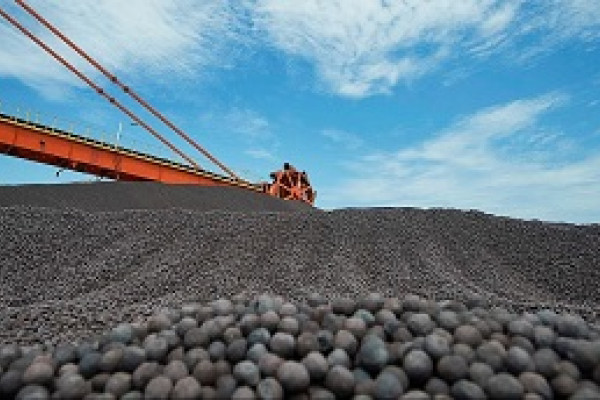
Export duties in countries are usually instituted and operated most often to prevent or restrict the outflow of raw materials and to support the upstream industries associated with this raw material. To clarify this issue, suppose Iran's export sponge iron customer purchases this product at the rate of X dollars per tonne of FOB, due to the fact that sellers of this product in international markets like other export products; They are considered to be Iran's commercial competitors, competing with Iran in any way in selling their product, for example X + $ 30 per tonne higher or X-$ 30 lower than the same sponge iron used by other competitors. International markets are offered and traded to buyers.
Now consider that the government imposes a 5% export duty on supporting upstream producers and restricting the export of these raw materials from the country, in which case the sponge iron exporters will have to reduce their commodity price in the domestic market by 2% and pay us This 5% difference to the government is the output tax because the foreign buyer will never be willing to accept this 2% price increase due to the presence of international competitors and other sellers, as a result of the upstream producer that previously had to Do not buy this product in the domestic market, for example the Toni (X-200) Now, with the help of this mechanism, you will be able to buy sponge iron in the domestic market [1% - (X-200)] which will definitely be lower than before.
Another important point is that export duties for a commodity usually reduce the export process's attractiveness to the producers of the commodity because they often prefer to pay the government 2%, for example, a figure less than This will be agreed with the domestic buyer and, naturally, for upstream producers, this situation will be better than ever before for export duties and will have more raw materials in the domestic market.
The introduction of 2 per cent duty on the export of sponge iron will undoubtedly be able to greatly facilitate the domestic market conditions for the supply of some of the raw materials required by private sector producers who do not have their own subsidiary to purchase sponge iron. excuseme.
This could mean that by improving the availability of raw material for induction rod manufacturers, it may be in the near future if the Act is actually implemented, as a result of this decision and affected by the competition that exists in the market and also with regard to Due to the very weak demand of the country's steel market, the trade union coordination between major steelmakers struggling to control domestic market prices with the supply of bullion drop through domestic stock markets Cluttered and perhaps re-segregated the two markets into a truly private sector production chain Forgive John again.
In the not too distant past we have seen, at times, the private sector rebar supply chain with the production of induction steel ingots, by offering lower and more attractive products to the domestic market, and subsequently lowering the final product rate. Compared to the state product, the share of domestic producers was small and insignificant, with the major supply chain activity focused primarily on export markets.
Due to a shortage of raw materials for the private sector, this sector has lost its competitive edge with the concession supply chain and may be on the verge of extinction; This section 4 returns their lost maneuverability to the market.
Great steelmakers are certainly aware of this, but on the other hand, they've worked hard over a series of relationships and changes over the past few months, from changes in market regulation to changing managerial and decision-making positions, and even some dislike. On the limited supply of bullion to the domestic market, they have taken the vital control of the domestic market by minimizing the role of the truly private sphere.


Leave a Comment